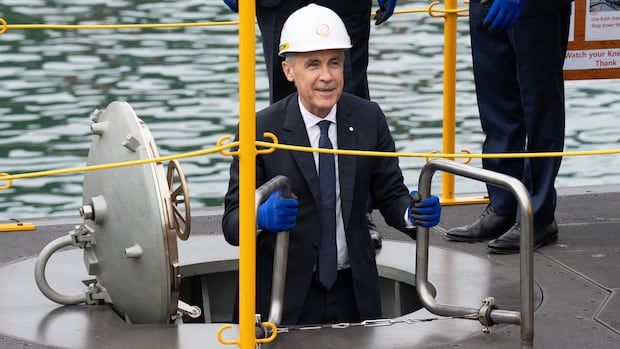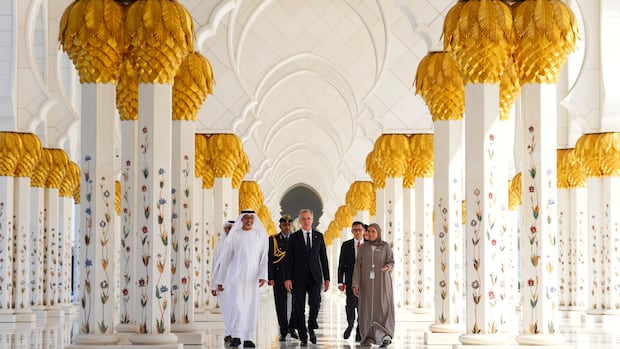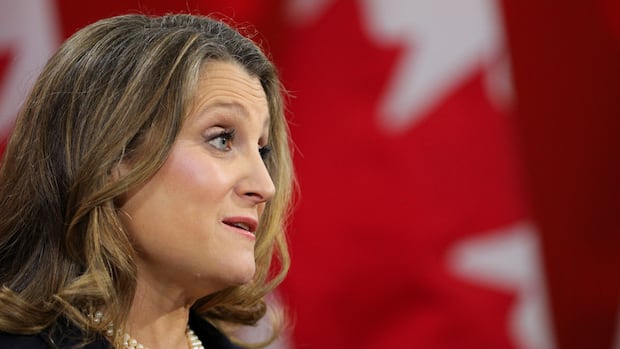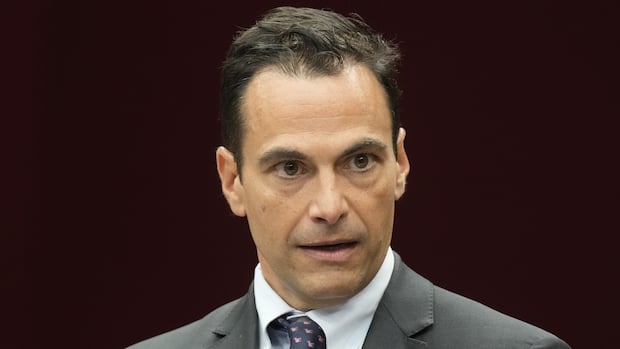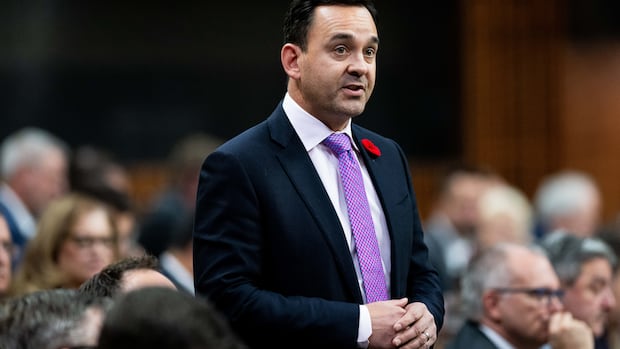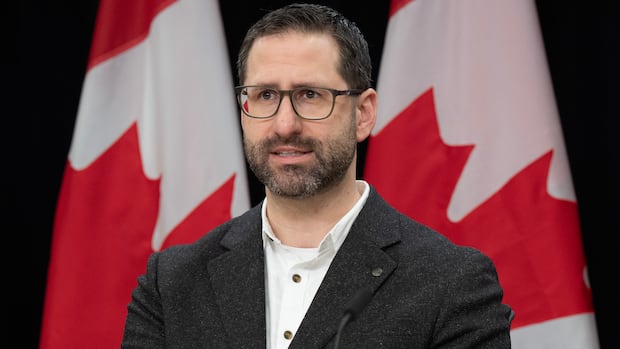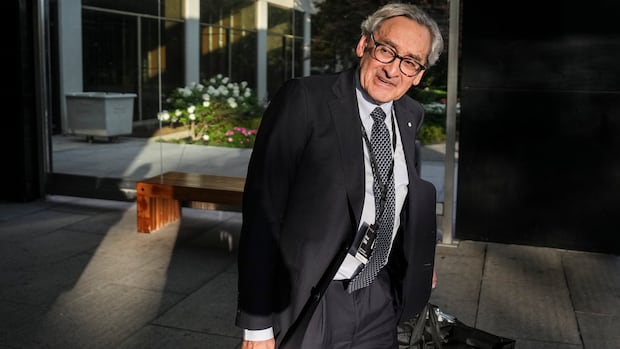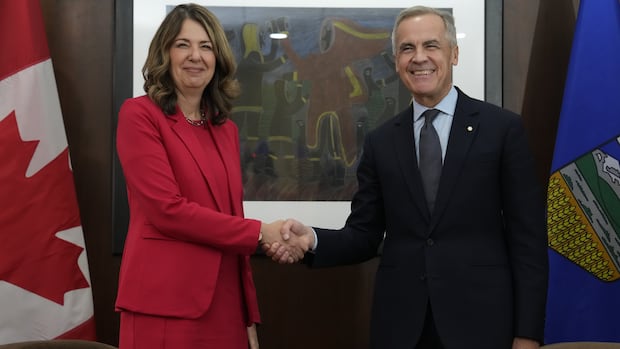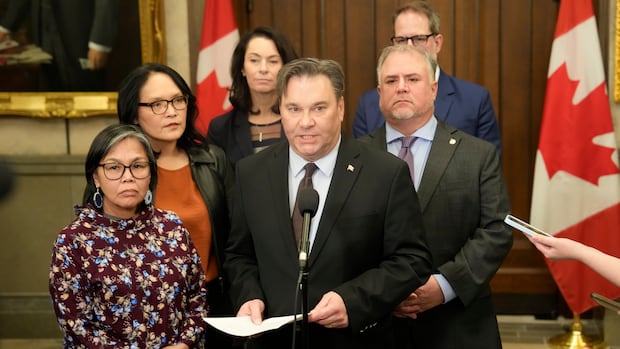Listen to this article
Estimated 5 minutes
The audio version of this article is generated by text-to-speech, a technology based on artificial intelligence.
Prime Minister Mark Carney signed an investment-protection agreement with the United Arab Emirates on Thursday, during a visit to Abu Dhabi that has involved limited media access as concerns grow the country is fuelling ethnic violence in Sudan.
Carney announced the investment pact following a meeting with U.A.E. President Sheikh Mohamed bin Zayed Al Nahyan. The two also launched talks for a full trade deal, aimed at an eventual comprehensive economic partnership agreement.
The prime minister also met Thursday morning with Industry Minister Sultan Ahmed al-Jaber, before touring a palatial mosque in Abu Dhabi.
He followed that with afternoon meetings with local sovereign wealth funds and investment companies including Mubadala, MGX, ADQ and ADIC, ahead of a dinner hosted by the U.A.E.'s national security adviser.
The visit comes just one month after the two countries signed an agreement to boost collaboration on artificial intelligence and data centres.
Timing is right, expert saysJanice Stein, founding director of the Munk School of Global Affairs at the University of Toronto, says the U.A.E. is becoming a leader in AI and can help Canada through both investment and innovation.
On a visit to the country earlier this year, she saw extensive AI adoption in the U.A.E., as well as enthusiasm from government officials for Carney — a former central banker and UN envoy — to visit the country.
"It is very prescient for the prime minister to go — and go early," Stein said in an interview Tuesday.
"They know him from his previous career, and so I think this is absolutely the right decision."
The U.A.E. is using its cheap energy to power data centres, similar to how Canadian firms hope to use Alberta's oilsands.
"It's going to be one of the powerhouses, one of the nodes in the global economy that's built around AI," Stein said of the U.A.E.
The country has also secured a promise from U.S. President Donald Trump that it will be able to access the most advanced American chip technology, despite concerns from some U.S. officials over the extent of the Emirates co-operating with China.
Former Quebec premier Jean Charest is co-chair of the Canada-U.A.E. Business Council, which Carney is set to address on Friday.
 Jean Charest speaks to reporters in Abu Dhabi, on Thursday. (Sean Kilpatrick/The Canadian Press)
Jean Charest speaks to reporters in Abu Dhabi, on Thursday. (Sean Kilpatrick/The Canadian Press)Charest told reporters in Abu Dhabi that signing an investment pact "is a prelude to a trade agreement in any scenario that Canada has been in."
He said a full trade agreement with the U.A.E. "should be fairly straightforward" because of Carney's visit.
"The only way Canada is going to have trade agreements with … new regions in the world is if the prime minister is the one who leads it," Charest said.
He noted that large U.A.E. investors already have a stake in major Canadian infrastructure, and the U.A.E. aims to position itself as the financial centre of the entire Gulf region.
"We have a lot in common, because we're each in our own way a hub to the rest of the world," he said.
 Carney tours the Sheikh Zayed Grand Mosque on Thursday. (Sean Kilpatrick/The Canadian Press)
Carney tours the Sheikh Zayed Grand Mosque on Thursday. (Sean Kilpatrick/The Canadian Press)On Thursday, Carney toured the Sheikh Zayed Grand Mosque, a sprawling mosque featuring 82 domes, which claims to house the world's largest hand-knotted carpet. Carney noted the building includes materials from across the world.
He said the materials were brought together in an "inspiring" way, and "a testament to the Emirati people to have conceived, created, built and shared this with humanity."
Media barredCarney's remarks were his only words to media on Thursday, with his visit not expected to include a news conference. His Emirati hosts have barred media from the bilateral meetings that most countries make open to visiting journalists.
The limited availability comes as the U.A.E. faces growing criticism over widespread allegations it is supporting a militia in the Sudan civil war that is undertaking shocking ethnic violence — something the U.A.E. denies.
WATCH | Tracking Canadian-made rifles in Sudan:CBC’s visual investigations team analyzes photos and videos posted to social media to uncover how rifles from a small, B.C.-based company are being used by a Sudanese paramilitary group accused of civilian massacres. Experts tell us how Canadian arms fuel Sudan’s conflict, with help from international brokers.Civil war erupted between Sudan's army and the Rapid Support Forces (RSF) in April 2023. The paramilitary RSF succeeded the Janjaweed militia that was behind the first Darfur genocide between 2003 and 2005.
Members of the RSF have posted multiple videos on social media of mass killings, often with ethnic taunts.
The U.A.E. has said there is no substantiated evidence that it has armed the RSF, despite a UN report saying there are "credible" allegations.
A readout of Carney's meeting with Sheikh Mohamed did not mention Sudan, but it did name Palestine.
 Carney met with U.A.E. Industry and Advanced Technology Minister Sultan Ahmed al-Jaber as he arrived in Abu Dhabi on Wednesday. (Sean Kilpatrick/The Canadian Press)
Carney met with U.A.E. Industry and Advanced Technology Minister Sultan Ahmed al-Jaber as he arrived in Abu Dhabi on Wednesday. (Sean Kilpatrick/The Canadian Press)Stein said the U.A.E. is involved in the conflict despite its insistence to the contrary, but she noted Abu Dhabi has also made recent moves toward peace that haven't been seen on the opposite side of the civil war in Sudan.
"The U.A.E. is one of the principal arms suppliers to the RSF," she said.
"The Rapid Support Forces have accepted a ceasefire that the Trump administration put forward, and the U.A.E. was instrumental [in that]. It's not forthcoming from the military."
After addressing business leaders Friday, Carney will travel to South Africa for the G20 leaders' summit in Johannesburg.


